Friday, March 13, 2009
Gag Order Issued for Iranian Archaeologists
Report from CAIS:
CAIS NEWS ©
Latest Archaeological and Cultural News of Iran and the Iranian World
Iranian Archaeologists are Banned from Interviewing
13 March 2009
LONDON, (CAIS) -- In an unprecedented move by the Iran’s Cultural Heritage, Handicraft and Tourism Organisation (ICHHTO), all the active Iranian archaeologists are banned to partake in any interview or reveal any information about the organisation or the status of Iranian archaeology.
Since 1979 Iranian archaeologists not only have carried out their duties as the ‘explorer’ to shed light on Iran’s past through their scientific works, but also voluntarily they have taken the task of protecting Iranian heritage from destruction. As the result of their endeavours today, most of Iranian newspapers, have an archaeological or heritage section dealing with the latest archaeological discoveries in Iran – and by doing so, they succeeded to bring the heritage matters to Iranian homes.
“The heritage matters have been taken seriously by the Iranian media for past few years, and Iranian archaeologists have become the bridge between the ICHHTO and the media – they as the educators have illuminated the significances of “heritage” and “archaeology” in today’s Iran”, according to a report by the Persian service of CHN.
The imposed interview ban has raised the suspicions and swayed the public’s mind that the authorities in charge of the organisation and subsequently the government want to censor and filter the news to cover up their incompetency in doing their jobs. Despite this the ICHHTO’s claim that the news would still be available to the public and media via their public relations office.
The banning of the archaeologists who are considered to be the heralds of the Iranian archaeological news is in contradiction with the Islamic Republic’s constitution and the move is considered to be illegal. Nonetheless, this is not the first time that the Islamic Republic’s ignores its’ own constitution.
By implementing such a ban the regime tries to close the only avenue of obtaining the accurate news about the status of Iranian archaeology.
ICHHTO’ Incompetency & the Censorship
ICHHTO have unsuccessfully tried to silence archaeologists in past, by channelling the news through the public relation office. However, since last year they stepped up their offensive behaviour towards archaeologists who choose to put themselves on the line of fire to protect their nation’s heritage and since then any experts who have criticised or exposed the ICHHTO misconduct have either received warnings or faced harsh reprimands and dismissals.
“Giving an expert view [of the heritage matters] is an absolute right of the archaeologists. Also issuing statements regarding a particular organisation’s internal affairs is the responsibility of their public relation offices, since the individuals including the experts are not fully aware of the protocols – therefore organisations nominate a speaker to execute the task”, said Mohammad-Mehdi Forqāni, lecturer of Media Science at Tabatabai University.
“As the experts cannot fulfil the speakers’ job – the speakers and public relation offices are also incapable of commenting about the culture and heritage matters, as it is the experts’ field”, said Forqāni.
He added “the banning law not only is revoking the archaeologists’ rights in expressing their expertise views, but also it is the abuse of the freedom of speech.”
He concluded “the media generally prefer to obtain the news directly from their sources, by interviewing the experts rather than via a [filtered] liaison office.”
ICHHTO executives in defending the banning decision have issued a number of contradictory statements, starting by: “experts are not aware of the cultural matters, and therefore they are providing wrong information.” This is while the majority of organisation’s executives are non-educated elements, who occupied the posts just because of their legions to the regime, connections or being the relations of the ruling clerics.
Following the above organisation has changed the statement and alleged: “since there is no difference between the experts and non-experts working for ICHHTO, the ban makes sure the prevention of any contradictory news.”
And the statement changed again to: “some news dealing with the Iranian heritage [in trouble] is being politicised and since the experts are not aware of the situation, they influence the process of resolving the problems, therefore the news should not reach the media directly.”
And in the final disdainful statement ICHHTO stated: “this ban is to ensure the job security of the archaeologists!”
The implementation of such censorships and news filtering demonstrates that people in charge of the organisation consider archaeologists as whistleblowers who expose ICHHTO’s incompetency in safeguarding the Iranian heritage.
ICHHTO which is responsible for protection of the Iranian heritage have failed in its’ responsibilities, and even have caused damages beyond salvation to Iranian heritage, in particular pre-Islamic sites.
One of the most devastating examples was issuing a permit to a construction company to build a hotel over a Partho-Sasanian (248 BCE – 651 CE) cemetery, which resulted in destruction 10,000 sq.m of the ancient site. The permit was issued by the head of ICHHTO provincial office, and endorsed by Esfandiar Rahim Mashaei the director of ICHHTO and the vice-president of current government in power. As the result of pressure from public ICHHTO forced to terminate the construction permit and in a public deceiving interview in July 2008, Rahim Mashaei who himself was one of the collaborators in destruction of the heritage site, tried to distant himself from the case by promising an inquiry, and claimed the wrongdoers will be prosecuted. The case was closed and no one brought to justice – including Rahim Mashaei.
Hamid-Rezā Hosseini a veteran Iranian journalist regarding the ban said: “this move in essence is pointless, sine we have well over ten thousand archaeological and historical sites throughout the country, which most are in a devastating and critical status. A significant number of these sites for past three years have suffered immensely and are on the verge of complete destructions, however, by a visiting those sites and simple observation we independently can inform the public about their statues and therefore we don’t require archaeologists to tell us anything.”
He added “this ban is demonstrates that there is a rift between the organisation’s management and their experts. ICHHTO’ management is well aware that the archaeologists do not follow most of the organisation’s [irrelevant and bureaucratic] protocols – and in a way the management want to cover up this partition.”
“ICHHTO management are imagining that their public relation office is capable to dealing with the cultural news bulletins. They want impose and decide for us what news is to be published and who we can talk to”, said Maryam Khorsand, journalist and the chief editor of Persian daily E’temād.
According to her, there is possible connection between the upcoming presidential election in Iran and ICHHTO’s banning of interviews.
Today Iranians journalists in cooperation with archaeologists have reached a level of independency and sophistication that the ICHHTO is incapable of controlling and filtering the news – such action is further damages to public’s trust in ICHHTO.
“Journalists will continue their relationships with the archaeologists – and archaeologists will continue informing us [in clandestine]”, said Monā Qāsemiyān, a cultural journalist with Persian daily E’temād.
Original News bulletin published in Persian by CHN , and translated and modified by CAIS [*]
Copyright © 1998-2008 The Circle of Ancient Iranian Studies (CAIS)
Subscribe to:
Post Comments (Atom)

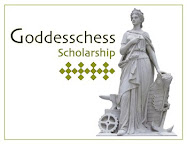
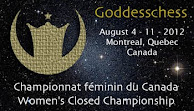


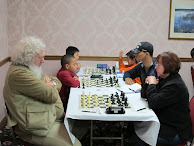

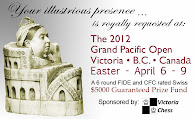

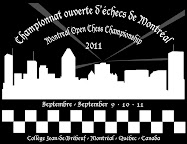










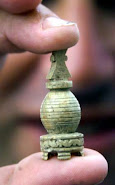











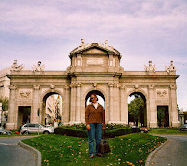


No comments:
Post a Comment